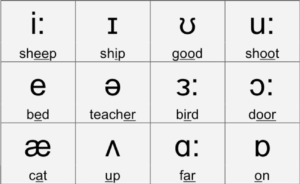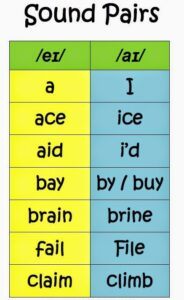Back to: English Language Primary 3
Welcome to class!
In today’s class, we shall be talking about Aural Discrimination where we’ll practice distinguishing between specific sounds. Aural discrimination is like sharpening your ear’s ability to detect subtle differences in pronunciation, which is a valuable skill for understanding spoken language.
Aural Discrimination
Imagine we’re sound detectives, uncovering the mysteries of pronunciation! 🔍👂 Today, we’ll focus on distinguishing between sounds like /3/ and /ɔː/, as well as /d/ and /ð/. Just like detectives pay attention to every detail, you’ll carefully listen to these sounds in words and sentences. Ready to become a master of aural discrimination?
Sound Pairs:

/3/ (as in “burn”) and /ɔː/ (as in “born”).
/3/ (as in “firm”) and /ɔː/ (as in “form”).
/3/ (as in “perch”) and /ɔː/ (as in “porch”).
/d/ (as in “cot”) and /ð/ (as in “court”).
/d/ (as in “spot”) and /ð/ (as in “sport”).
I want you to listen to the sounds and words carefully. Try to notice the subtle differences in how they are pronounced. Alright? Let’s go.
Try these sentences:
“I can burn this bush.”
“A new child is born.”
“The firm sent a form to me.”
Today, we discussed sharpening the ability to distinguish between specific sounds, such as /3/ and /ɔː/, as well as /d/ and /ð/. Aural discrimination is like becoming a skilled sound detective, where careful listening allows us to notice subtle differences in pronunciation. This skill is essential for understanding spoken language and improving comprehension
Evaluation and Question:
Why is aural discrimination important for understanding spoken language? Can you think of other words or sentences that contain these sound pairs?
Assignment:
Over the weekend, challenge yourself to identify these sound pairs in conversations or recordings. It’s like solving sound mysteries!
We have come to the end of today’s class. I hope you enjoyed the class!
In the next class, we shall be discussing Use of Regular and Irregular Plurals in Speaking and Writing.
In case you require further assistance or have any questions, feel free to ask in the comment section below, and trust us to respond as soon as possible. Cheers!

Thank you, am a teacher in making, this piece is really helping me alot